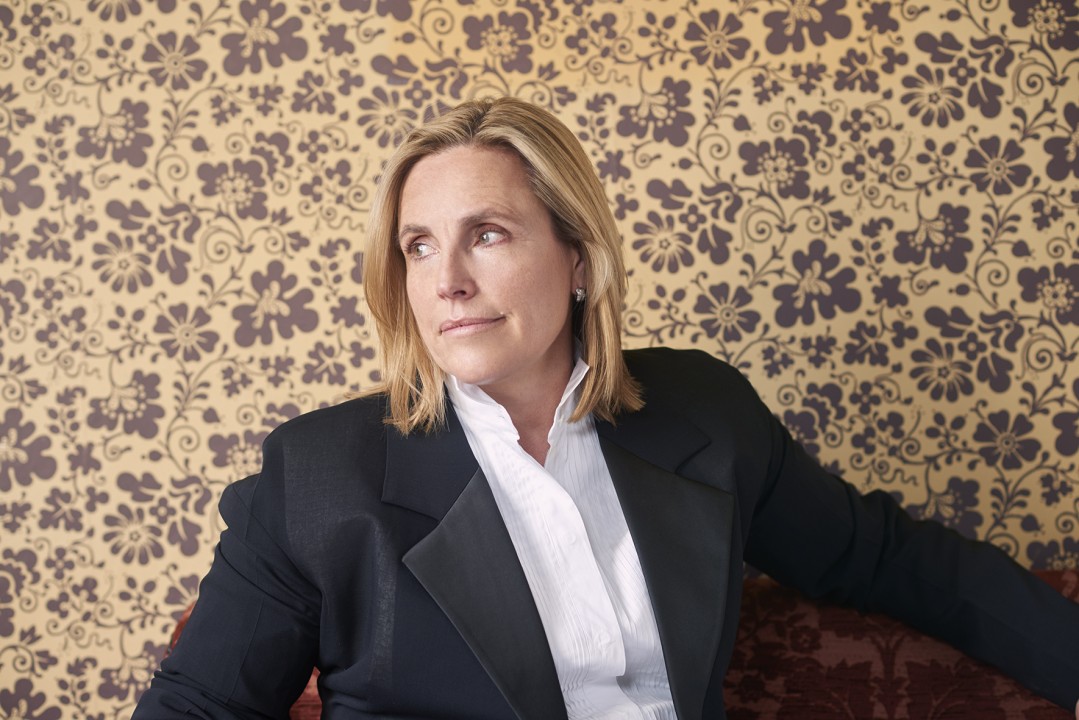We interviewed Julia Harrison, Senior Managing Director at FTI Consulting about her life’s work and view of the public affairs scene. Julia specialises in board-level advice and was previously CEO Europe of an international consultancy. She has 30 years public affairs experience and has worked at the highest level across sectors and industries.
FTI is a global business consulting firm offering clients a wide range of advisory services. What is the unique character of your Brussels office?
Our Brussels office has got a reputation for being a really tight team and a good place to work where you can form lasting friendships and get strong learning opportunities and development. We were originally set up as an all women business – are the two linked? I don’t know but our team is really important for us and so when choosing our colleagues, we prioritize that. Even over other things that would grow the business. From the outset we focused on gathering people from diverse and non-consulting backgrounds to give our clients a richer perspective. This has been a major growth factor for the business.
The access we have to a breadth of services, skills and tools that you wouldn’t normally find within a public affairs toolbox is also quite different, for example the very substantive data analytics business. We have joint team members within our data analytics and public affairs teams, allowing us to really look at what the data is telling us; where policy conversations are going.
Data analytics is just one example, but whether it’s that or economic consulting, corporate finance, business transformation or governance, it’s truly unique to have this business consulting expertise all in one place in this way for clients.
Finally, what makes us stand out is the depth of our expertise. Having now up to 80 people in Brussels, we have organised ourselves around particular areas of expertise. And, whilst in a consultancy you never want to be siloed, you want to be able to pull people in from different parts of the business, we have been able to build up that in-depth expertise. This is crucial as we’re required to have an unprecedented level of detailed knowledge today to stay on top of the regulatory and policy agenda.
Do you recognise this need for professionals to have both an in-depth topical expertise and the ability to work across a wide spectrum of topics?
Absolutely. That’s because many issues are so interconnected. The Brussels consultancy environment has always required a specific type of professional – experts in the EU system and its dynamics, in that interface between the way a business organisation might speak and the way a political stakeholder group engages. Someone able to hop across the subjects and think from the client’s perspective, understand the impact of political actions on the business, anticipate where clients may contribute and what they should ask for. And this, I believe, is an expertise in itself.
You have spent most of your professional life in a consultancy environment, working with clients from across sectors and industries but do you have any preferred topics?
I actually don’t. I’m sort of topic agnostic but I’m ethically interested and bound. What’s interesting to me is what can one do faced with any given situation. It’s about understanding what the problem is, how you can solve it, and where you can take it in terms of creating something.
I like building things. So the questions that drive me are: how do you build something that is sustainable and lasting that is right for all the different constituencies? Is that possible? How do you cut through the politics as opposed to the policy without being too dry? And how do you get people around the table creating something together?
As an entrepreneur – you founded your own consulting firm, Blueprint in 2003. It grew rapidly and promptly became an important player on the Brussels scene. In 2008, Blueprint sold to FTI Consulting. What was your motivation to sell?
The motivation to sell was simply that we wanted to keep growing. We set up and put ourselves targets for 10 years, in terms of the type of business we wanted, the number of people we wanted, and the type of things we would work on for our clients. We managed to hit the targets in five years, so then we had to either really invest in the business ourselves, or we had to find a partner to help us work beyond Brussels – internationally.
One thing I know now, that I wish I had known then is that you can be brave, go to the investors and get them to support you. I think I wasn’t ready to do that in those days, and so it was really about finding the right partner who would enable us to go on to that next stage of international growth. And I don’t regret it for a second, I have to say.
And what made FTI the right partner for you?
Having worked before in an agency which was part of a marcom group, I didn’t want to go back to that sort of setup. I wanted to see if we could put the public affairs and strategic communications into a business advisory setting, and whether it would allow us to get different clients, different people, and deploy different types of tools for our clients. Hence FTI.
And I suppose the reason I’m still here 10 years later, is that it works and has provided fantastic opportunities across all those areas.
Thinking about the diverse work you’ve done throughout the years, what do you consider to be your single greatest achievement?
I would say the people that make part of our team. There are a lot of very smart, capable people here who are really the ones that drive the achievements for the clients. My job is to sit behind them, and try to give them the support tools, development, learning and experience that will make that possible for them.
I really like the way we’ve built our team here. We have people from so many different countries and backgrounds. People that had never been in a consultancy before, to people who have been around for 15 or more years. Just getting that group together is amazing.
To that point, what does leadership mean to you?
I think you have to be brave. There always has to be someone that goes first, that takes the lead.
It does not always have to be you. In fact, leadership is also about encouraging others to take on the leading role in specific situations. My definition of leadership is not about a single individual, it’s about how you multiply people’s confidence and ability to take things forward.
What I enjoy about playing a role as part of that, is that you have to challenge yourself as well. I think the best leaders are people that hold themselves to account and try to keep learning all the time, particularly when you get it wrong!
How do you challenge yourself on a daily basis?
Partly by keeping up with people – teams, clients, others that one talks with every day: the challenge is in how am I going to add something to that?
Another challenge is to consciously go beyond the Brussels context and to constantly reflect on how to bring the global perspective to what we do.
As a company we are doing really well but I always ask the question how we can do better. Sometimes that can be a bit hard because it seems like you’re never satisfied with things but that’s part of the job – not being content but always looking for ways to improve.
The EU-centered Brussels environment is often branded “the bubble”. Yet more and more issues we’re facing are much bigger than one country or region. How does that reflect on the work you do at FTI?
Over the last five years or so, we’ve seen a big increase in regulators talking to each other across different regions of the world.
Combined with social media spreading issues so quickly, if you try to deal with issues in one jurisdiction alone, it’s like playing whack-a-mole. You hit something in one place, and it pops up somewhere else. And, anyway, we need a much more transparent and holistic approach across different markets.
What that means for us is that we need to work across jurisdictions, collaborating closely with colleagues from our offices in other countries across the globe. It’s also about being able to react swiftly to any developments, wherever they may be happening. It is important for an organisation like ours to be able to move very nimbly and adeptly.
Is the ability to go beyond the EU-related expertise something that you look for when recruiting for Brussels?
It’s one thing to have a broad geographical presence and people on the ground. Another thing is how you coordinate that and wield it to achieve the right effect.
Of course, we need a diverse team to make it work. We need people with project management skills, who are culturally attuned and able to understand how a narrative is going to play out in different geographies. Others that can bring campaigning expertise. I also think we need colleagues with a more seasoned approach that can reflect on how past experiences and lessons learnt may apply to issues currently at stake.
We’re seeing the new European Parliament and European Commission taking shape these days. What was your reaction to the European elections and what do you think we can expect in the months to come?
I’ve been here for a while now, and have seen six political changeovers. Every time, everyone gets very excited about a new beginning and a new way of doing things.
That said, we do have a very different political climate now, with growing polarisation across EU member states. And while the impact of this polarisation on the European Parliament elections has actually been smaller than anticipated, it is evident we still need to pay great attention to the democratic process as such.
I believe we will see a lot of changes in how things get done in Brussels. We can expect it to become much more agile. We have seen the Trump – Twitter example, and whatever we think of it, truth is that the linear policymaking process has been breaking down for quite a while now. This is already visible with increasing amounts of legislation moving through more quickly, companies calling for co-regulation and different types of policy instruments emerging. There is also much more fragmentation and so views are not necessarily traditionally holding by party line. That’s very interesting.
What impact will that have on your work and clients?
In terms of subjects that we are treating, the impact of disruptive technologies on traditional sectors is only just starting to be felt in regulatory terms. Legislators will have a choice of approaches: whether to address an issue from a competition perspective, or rather from a regulatory perspective, for example.
Traditional industries that have been digitising over recent years will start taking different positions on many matters, too.
The economic downturn which we are likely to see at some point during this next mandate will deepen political pressure. What that means for us is that we will have to be even more precise, segmented and tailored in how we engage with our campaigns. People want greater substance and transparency around the policy debates. Everyone will have to work very hard to maintain their place in the debate.
In these exciting but also challenging times, if you could have one wish for Europe, what would that be?
I would love to see the diversity that we have across Europe translated into a real diversity in Brussels itself. So that collectively we actually can live up to the full potential of a richer, diverse policy community.
We run a specific program here and every year when we recruit graduates we go and search for people from different backgrounds. My philosophy is clear on that: if you have a different background, we want to talk to you because I am convinced that having a diverse team makes for a better outcome for clients and stakeholders, and it makes for a more successful commercial business.
It may sound fluffy but I truly believe in that.


